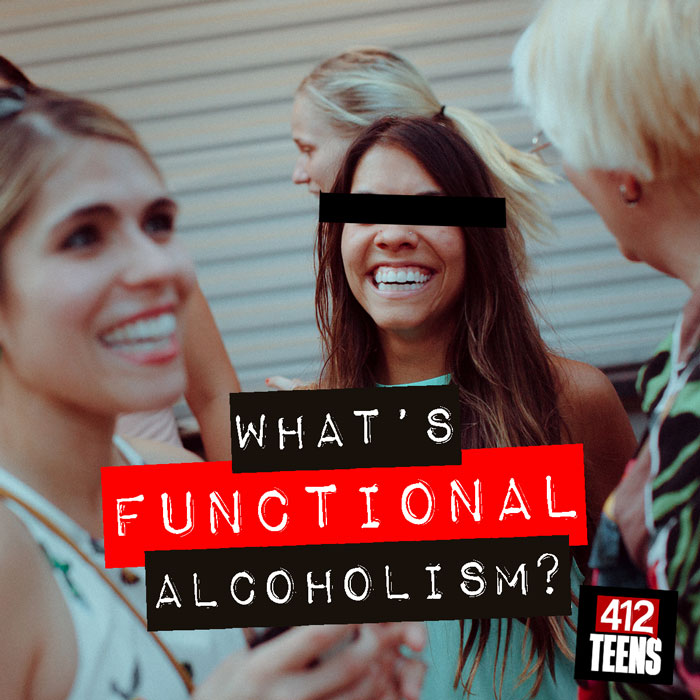What is a functioning alcoholic?

"Don't gaze at the wine, seeing how red it is, how it sparkles in the cup, how smoothly it goes down. For in the end it bites like a poisonous snake; it stings like a viper." —Proverbs 23:31-32 (NLT)
"Functional" alcoholism is a condition in which a person is an alcoholic but still able to have success in work, family, school, and/or social life. Both the physical health and mental health industries tend to prioritize people whose condition affects their daily lives in a negative way. When an addiction doesn't seem to cause negative effects, it's easy to ignore. But that doesn't mean that alcoholism isn't having some kind of negative effect on the functional alcoholic. The damage may be gradual and hard to see, but it IS happening.
Denial is among the functioning alcoholic's greatest enemies (1 John 1:8). When a functioning alcoholic doesn't outwardly show symptoms or difficulties, friends and families may not understand the danger either. Those who refuse to admit they're addicted are unlikely to seek help or treatment on their own. But the fact remains: functional alcoholics are suffering. It's just hard to detect from the outside.
The Damages of Alcoholism
"Wine is a mocker, strong drink a brawler, and whoever is led astray by it is not wise." —Proverbs 20:1
Excessive alcohol consumption causes damage even if the signs aren't obvious. Here are a few areas in which every alcoholic will suffer:
Emotional Resilience: Drinking is often an avoidance tool or coping mechanism. Alcohol is an easy way to dull your emotional responses. Just a little can ease social anxiety. But the more a person drinks, the less often they're forced to deal with stressful situations. Eventually, they may find themselves unable to cope with normal life without being heavily under the influence of alcohol at all times (Luke 21:34).
Physical Deterioration: Studies have shown that excessive alcohol consumption will inevitably lead to internal organ damage—from disabling the brain to causing cancer. Someone may be cognitively clear, emotionally stable, and professionally and personally fulfilled on the outside. Yet, even if they can drink every night and never get a hangover, their body is suffering. Their brain will rely on and desire more and more alcohol. Meanwhile, their liver, heart, and pancreas will become diseased.
The Inevitable Crash & Burn: The apostle Paul wrote, "Don't be drunk with wine, because that will ruin your life" (Ephesians 5:18a, NLT). Functional alcoholism can only uphold the illusion of normalcy for so long. Eventually, the functional alcoholic will cease to actually function—whether emotionally, mentally, or physically. Sometimes, their physical health will go first. But usually, their loved ones are the first to suffer.
Spiritual Unhealth: The rest of Ephesians 5:18 says, "Instead, be filled with the Holy Spirit." Similar to the loss of emotional resilience, drinking too much can dull a person's reliance on God and their sensitivity to the Holy Spirit. They may no longer care about adherence to their own morals and convictions. They may avoid God out of guilt or shame. They may even grow numb to their need for Him at all. Anything that takes God's place of power in our lives is an idol (Psalm 16:4; 1 Corinthians 10:14).

Research suggests that the patterns in adolescent brain development may increase the likelihood of them engaging in unsafe behaviors such as alcohol use and abuse1—and teens can be really good at hiding what's wrong. Because functioning alcoholics can lead mostly "normal" lives, they often don't notice or understand how their drinking damages themselves and others.
Alcoholism does not cause God to reject a believer or revoke their salvation—nothing can do that (Ephesians 2:8-9). But Jesus wants them to know the truth and the truth of how they can be free from their addiction (John 8:32). God is Yahweh-Rapha—the God who heals both wrong thinking and harmful ways of living.
"Come to me, all who labor and are heavy laden, and I will give you rest. Take my yoke upon you, and learn from me, for I am gentle and lowly in heart, and you will find rest for your souls. For my yoke is easy, and my burden is light." —Matthew 11:28-30
If you realize that you show symptoms of alcohol abuse, we recommend Celebrate Recovery.
RESOURCES: 1. National Institute on Alcohol Abuse and Alcoholism. (n.d.). Alcohol and adolescent brain. U.S. Department of Health and Human Services. https://www.niaaa.nih.gov/publications/alcohol-and-adolescent-brain [Accessed: June 20, 2025].
ALSO SEE:
- What does the Bible say about drinking?
- How do people become alcoholics?
- Is alcohol abuse a sin?
- Should Christians go to parties?
- Is caffeine addiction a sin?
- Why are personal convictions important?
- Why can't Christians have fun?
- How can I overcome peer pressure?
- How can I avoid the appearance of evil?
- What does the Bible say about vaping?
- Should a Christian smoke?
- Celebrate Recovery.


TL;DR
Functioning alcoholics are addicted to alcohol, but their addiction seems to have minimal effect on their outward lives. They think their drinking doesn't matter because it doesn't seem to interfere with daily activities. Meanwhile, the silently growing internal damage builds until their bodies, minds, and relationships are destroyed. Alcoholism does not cause God to reject a believer or revoke their salvation—nothing can do that (Ephesians 2:8-9). But alcoholism can be devastating both for the sufferer and those around them, so please seek help—even if you feel you can still "function." Jesus wants you to know the truth of how you can be free from addiction (John 8:32). God is Yahweh-Rapha—the God who heals both wrong thinking and harmful ways of living. Ask God for the courage and strength to take that first step in connecting with loved ones, your pastor, or even pursue therapy through counseling or a support group like Alcoholic Anonymous (1 Corinthians 10:13).
